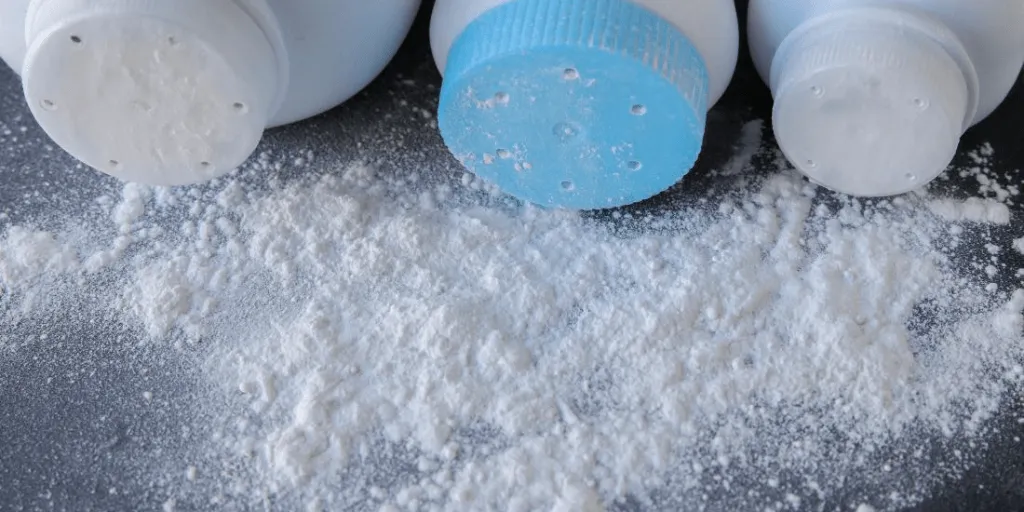In 2013, the first talcum powder verdict was awarded to a plaintiff who tied the use of the powder to their development of ovarian cancer. Since then, over $5 billion has been awarded to ovarian cancer plaintiffs in talc litigation.
A bombshell report by Reuters news agency in late 2018 revealed that Johnson & Johnson knew for decades that its baby powder products were contaminated by asbestos, a mineral known to cause cancer, but the company failed to publicly disclose that information.
According to the Reuters’ story, Johnson & Johnson’s raw talc and talcum powder tested positive for trace amounts of asbestos on several occasions between 1971 and 2003. The article cited numerous internal company memos, reports and other documents disclosed during talc lawsuits that suggest the company knew of the danger.
Johnson & Johnson vigorously denied the allegations in a statement on its website and called the story an “absurd conspiracy theory” defending its baby powder, used in American households for decades, as “safe and asbestos-free.”
On Oct. 18, 2019, Johnson & Johnson issued a voluntary recall for one lot of Johnson’s Baby Powder after a U.S. Food and Drug Administration test found trace levels of chrysotile asbestos contamination.
In January of this year, the largest suppliers and distributors of talcum powder products in the U.S. were sued in Los Angeles Superior Court accused of hiding that their products contain excessive levels of dangerous chemicals shown to cause cancer, birth defects or reproductive harm. The lawsuit involves such popular brands as Johnson’s Baby Power, Gold Bond and Shower to Shower. It also involves private label brands distributed and sold at some of the largest nationwide retailers, including CVS, Dollar General, Target, Walgreens and Walmart. The lawsuit alleges a violation of California’s Safe Drinking Water and Toxic Enforcement Act of 1986, Health and Safety Code section 25249.6, known as “Proposition 65.” Under the law, businesses must provide consumers with a “clear and reasonable warning” before exposing individuals to chemicals known to cause cancer, birth defects or reproductive harm.
The carcinogenic chemicals and reproductive toxins at issue include arsenic (inorganic oxides); chromium (hexavalent compounds); and lead and lead compounds. These chemicals are listed in Proposition 65 as chemicals known to cause cancer or reproductive toxicity. The lawsuit further alleges that efforts to hide talcum powder’s true contents date back to at least 1976, when the talcum powder industry adopted talc “purity standards” designed to hide the presence of carcinogen and reproductive toxins in their products. The redefined talc was to consist of a minimum of 90 percent talc with the remainder “consisting of naturally associated minerals.” Unbeknownst to consumers, that allowed for the inclusion of arsenic, lead and hexavalent chromium.
According to the Plaintiffs, there is a growing body of scientific evidence linking the use of talcum powder to ovarian cancer. They allege the evidence was ignored by an industry that put profits over people.
A 2017 New York case has again recently made headlines. Nemeth v. Whittaker Clark & Daniels, was recently affirmed on appeal by the New York Appellate Division. In that case, the appellate court determined that it is not always necessary to quantify the exact amount of asbestos present in talc, only that there was a sufficient level of exposure — enough to contribute to the disease’s development.
Another key decision came this summer in a multidistrict litigation (MDL) hearing before Judge Freda Wolfson in New Jersey when J&J was denied its motion to preclude plaintiff expert testimony due to alleged improper testing methods. Judge Wolfson determined that the plaintiff’s expert’s methodologies were largely reliable. Therefore, the expert will be allowed to testify at trial about his findings using a Transmission Electron Microscope that J&J’s talc products contained asbestos.
Just two weeks later J&J announced they will no longer sell their famous Baby Powder. Unfortunately, rather than pull the product from store shelves immediately, they plan to exhaust existing supplies of the product in the United States and Canada, after which they will only sell the cornstarch variant.
Although the defendants have won some cases, juries have returned billions of dollars in verdicts for plaintiffs, and lawsuits continue to pour in. Most settlements so far have been with individual plaintiffs for undisclosed amounts. Consumers who allege injuries as a result of talc use deserve to have been warned of its dangers.
If you or a loved one has developed ovarian cancer or mesothelioma that you believe is related to the use of industrial or cosmetic talc products, contact attorney Jacqueline Thomas for a free consultation.


